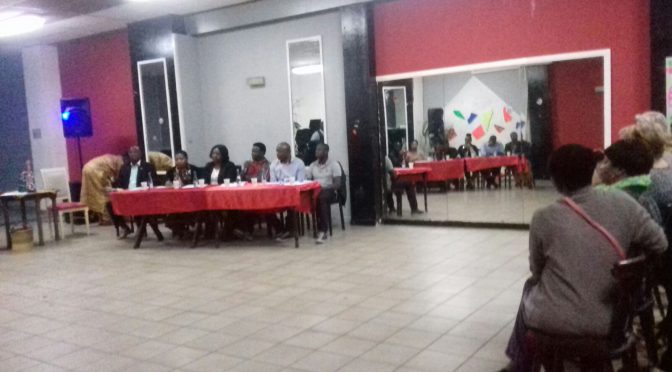(Being text of brief Opening Statement by Councillor Collins NWEKE, Ostend City Council, at a Debate organised by CAW Intercultural Women Centre Antwerp Belgium on Saturday 4 June 2016)
Protocols
I understood from the debriefing for this debate that I am to give a summary keynote talk on the relationship between youths of African background and their parents here in Belgium. It therefore means, essentially, that the topic of the debate is also about me because before anything else – politician, global affairs analyst, management consultant, whatever – I am an African, an African parent raising two sons, born here and growing up in this society. Once I established that fact, I decided that rather than refreshing my mind on the theory and principles of parenting and strategies of teen-parent conflict resolution, I was going to rely on my personal experience. After all the most rewarding and at the same time most challenging is being a parent. I must say that the personal experience that I refer to has over the past decade being enriched by my encounter with fellow-parents and interactions with young people of African origin, some of whom are present here tonight.
Identity
I guess the first important issue in the discussion of tonight is the question of identity. The psychologist, Terri Apter it was, I believe, who once said that “”the real cause of turbulence, is the teen’s own uncertainty about who he is, alongside his eager need to establish a sense of identity” Does being African, growing up here in Europe or born in Africa and raising your kids here in Europe bring with it an extra burden of establishing your identity? Am I African or European? Should I raise my kids as Africans or as Europeans, after all as the saying goes “ when you are in Rome, behave like the Romans” Some would say that you do not need to be either of the two. They hold that what you should strive to be is the best of both cultures. By this they mean that it is up to you to identify good elements of the African culture and marry those with the good elements of the European culture. Easier said than done, I can hear some of you think. Sure, the search for your identity involves self-questioning and self-discovery and self-development across a range of issues, including gender, faith, intellect and relationship.
The early culture conflict
The self-questioning begins during the teenage period and intensifying. The teen questions everything. By coincidence or by design, they question particularly those parts of your culture as African parent that you hold dearest to your heart. Is rebuke the answer? Or should you simply conceal things? Just don’t discuss it? A culture of open communication will help you through those early conflict years. It feels good to want to see African culture as the best in the world but I am sorry to disappoint you. Though one culture may conflict with another culture, no culture is best or worse. One culture can only be different from the other. An African youth growing up in Europe has the right to consider some aspects of his or her parents culture less than pleasant and the African parent has the obligation to explain in clear terms the reasoning behind the culture. And why not, admit it when some aspects of your culture defy logic and require a review. I have had to explain to my two young sons why you can’t call a much older African person by their first names. He is either uncle or she is aunty. I am not sure my explanation was ever convincing to my sons but because I explained why it is the way it is, they simply call these ‘’strangers’ uncle or aunty. Is it ever too early to initiate these discussions? No, I don’t think so. Indeed the earlier the better. I would rather that even before my son has a girl-friend, he already knows that it is unacceptable in my culture for my daughter-in-law to call me by my first name than wait until the ‘crime’ is committed. The key question here is: are we communicating enough, openly and honestly? If we are not, we should and that is why this initiative is simply great.
The Debate
It is in the context of open and honest communication that debates are very important. Debates are positive confrontations. At debates such as the one this evening, we hear opposing views because like a coin, every issue has the other side. More than proving a point that I am right and you are wrong, a debate helps to broaden your mind, enriches your soul and finally helps you to grow. Researches upon research have demonstrated that conflicts are mainly borne out of lack of understanding. There is no doubt therefore that efforts such as this debate contribute to building a more tolerable, harmonious society.
I hope this debate will help you grow in understanding one another, in accepting that no matter the differences in opinion or ideology, we are all members of a common humanity. I wish you a fruitful and fulfilling debate and of course a fantastic After Party.
Thank you
Antwerp, Belgium 4 June 2016
